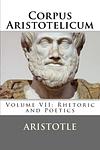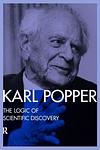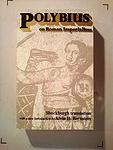The Greatest Greek, Austrian "Humanities" Books of All Time
Click to learn how this list is calculated.
This list represents a comprehensive and trusted collection of the greatest books. Developed through a specialized algorithm, it brings together 305 'best of' book lists to form a definitive guide to the world's most acclaimed books. For those interested in how these books are chosen, additional details can be found on the rankings page.
Genres
The category of "Humanities" in books encompasses a wide range of subjects that explore the human experience and expression. This includes literature, philosophy, history, art, music, religion, and language. These books aim to deepen our understanding of the world and ourselves, and to explore the complexities of human culture and society. Through the study of humanities, readers can gain insight into the past, present, and future of humanity, and develop a greater appreciation for the diversity of human thought and expression.
Countries
Date Range
Reading Statistics
Click the button below to see how many of these books you've read!
Download
If you're interested in downloading this list as a CSV file for use in a spreadsheet application, you can easily do so by clicking the button below. Please note that to ensure a manageable file size and faster download, the CSV will include details for only the first 500 books.
Download-
1. Oedipus the King by Sophocles
"Oedipus the King" is a tragic play that revolves around the life of Oedipus, the king of Thebes, who is prophesied to kill his father and marry his mother. Despite his attempts to avoid this fate, Oedipus unknowingly fulfills the prophecy. When he discovers the truth about his actions, he blinds himself in despair. The play explores themes of fate, free will, and the quest for truth, highlighting the tragic consequences of human hubris and ignorance.
The 80th Greatest Book of All Time -
2. The Republic by Plato
"The Republic" is a philosophical text that explores the concepts of justice, order, and character within the context of a just city-state and a just individual. It presents the idea of a utopian society ruled by philosopher-kings, who are the most wise and just. The dialogue also delves into theories of education, the nature of reality, and the role of the philosopher in society. It is a fundamental work in Western philosophy and political theory.
The 142nd Greatest Book of All Time -
3. The Bacchae by Euripides
"The Bacchae" is a classic Greek tragedy where the god Dionysus, disguised as a mortal, returns to his birthplace in Greece to punish the impious King Pentheus who denies Dionysus's divine nature and refuses to worship him. The narrative explores themes of revenge, mortality, and the relationship between man and god. Dionysus uses his power to drive the women of the city into a crazed frenzy, leading to a tragic end for King Pentheus and his mother Agave.
The 374th Greatest Book of All Time -
4. Philosophical Investigations by Ludwig Wittgenstein
This book is a seminal work in 20th-century philosophy, presenting a detailed critique of the notion that our language directly corresponds to reality. The author argues that the meaning of words is not inherent, but rather derives from their use within specific forms of life. The book also introduces the concept of language games, suggesting that our understanding of language is akin to learning the rules of a game. The author further explores the limits of language, the nature of understanding, and the relationship between public and private language.
The 454th Greatest Book of All Time -
5. The Nicomachean Ethics by Aristotle
This philosophical work focuses on the concept of ethics, specifically virtue ethics, and how it relates to a person's character and happiness. The author argues that happiness is the highest good and the end goal of life, and that it is achieved not through pleasure, but through virtuous actions. The book also explores the nature of practical reasoning, the different kinds of virtues, the importance of friendship, and the role of luck in human welfare.
The 497th Greatest Book of All Time -
6. Philoctetes by Sophocles
"Philoctetes" is a Greek tragedy that tells the story of a skilled archer abandoned on a deserted island by the Greeks during the Trojan War, due to a foul-smelling wound on his foot. Years later, the Greeks discover a prophecy that they will need Philoctetes and his magical bow to win the war. They send Odysseus and Neoptolemus to retrieve him, leading to a moral dilemma as they must decide whether to deceive the bitter and mistrustful Philoctetes or to persuade him to willingly join their cause. The play explores themes of suffering, deceit, and the struggle between personal integrity and duty.
The 576th Greatest Book of All Time -
7. Tractatus Logico-Philosophicus by Ludwig Wittgenstein
"Tractatus Logico-Philosophicus" is a seminal work in analytic philosophy that presents a comprehensive picture of reality and our knowledge of it. The book outlines a logical structure for all scientific discourse, arguing that language and its logical structure are the primary tools for understanding and representing the world. It proposes that all philosophical problems arise from misunderstandings of the logic of language, and that all meaningful propositions are pictures of states of affairs in the world. The book concludes with the famous line "Whereof one cannot speak, thereof one must be silent," suggesting that things that cannot be spoken about logically should not be spoken about at all.
The 587th Greatest Book of All Time -
8. Corpus Aristotelicum by Aristotle
The "Corpus Aristotelicum" is a collection of texts by an ancient Greek philosopher, providing an extensive exploration of numerous fields of knowledge, such as metaphysics, ethics, logic, politics, biology, and poetry. These works have been instrumental in shaping Western philosophy and have had a profound influence on a wide range of subjects, including science, theology, and politics. The collection is known for its systematic and logical approach, and for its groundbreaking ideas that continue to stimulate intellectual discourse.
The 762nd Greatest Book of All Time -
9. The Clouds by Aristophanes
"The Clouds" is a satirical play that critiques the intellectual and moral corruption of Athenian society by focusing on a father-son relationship. The father, in an effort to evade debt, sends his son to a school of sophistry to learn the art of manipulating language and logic to win arguments. The story explores themes of education, morality, and the conflict between traditional and modern values. The play is well-known for its critical portrayal of Socrates as a sophist and its comedic elements.
The 807th Greatest Book of All Time -
10. The Persians by Aeschylus
"The Persians" is an ancient Greek tragedy that tells the story of the Persian King Xerxes and his failed invasion of Greece. The narrative focuses on the aftermath of the Battle of Salamis, depicting the mourning of Xerxes' mother and the ghost of his father Darius, who prophesied the fall of the Persian Empire. It serves as a critique of the arrogance and hubris of Xerxes and a celebration of Greek victory, while also exploring themes of war, loss, and the consequences of ambition.
The 825th Greatest Book of All Time -
11. Phaedo by Plato
"Phaedo" is a philosophical dialogue that takes place in ancient Greece, where the main character, a philosopher, is awaiting his execution. The story is a discussion on the nature of the afterlife, the immortality of the soul, and the theory of forms. The philosopher argues that the soul is immortal and that we should not fear death. He also discusses his theory of forms, stating that the world we perceive is merely a shadow of the true world of forms. The dialogue ends with the philosopher calmly accepting his fate, illustrating his belief in the immortality of the soul.
The 990th Greatest Book of All Time -
12. Hippolytus by Euripides
"Hippolytus" is a tragic play that revolves around the themes of lust, revenge, and the wrath of the gods. The story follows the character Hippolytus, a dedicated follower of the goddess Artemis, who spurns the advances of his stepmother Phaedra. In a fit of jealousy, Phaedra falsely accuses Hippolytus of rape, leading his father Theseus to curse him. The resulting divine punishment and misunderstandings lead to the tragic deaths of both Hippolytus and Phaedra, revealing the devastating consequences of deceit and the unforgiving nature of the gods.
The 1079th Greatest Book of All Time -
13. The Constitution of Liberty by Friedrich von Hayek
This book is a comprehensive analysis of the concept of liberty, emphasizing the importance of individual freedom in political, societal, and economic contexts. The author argues that a free society, where individuals can act according to their own decisions and plans, is the most effective system for human progress. He also explores the relationship between law and liberty, the role of government in a free society, and the challenges to liberty posed by concepts such as social and economic justice.
The 1170th Greatest Book of All Time -
14. Works and Days by Hesiod
"Works and Days" is an ancient Greek epic poem that provides advice on life and farming. The author uses the myth of Prometheus and Pandora to explain why life is hard for humans, attributing it to Pandora's release of evils into the world. The work serves as a farmer's almanac, giving detailed advice on the best times to plant and harvest crops, and also provides moral guidance, emphasizing the importance of hard work, justice, and piety.
The 1466th Greatest Book of All Time -
15. Fragments by Heraclitus
"Fragments" is a collection of philosophical musings and theories from an ancient Greek philosopher. The book explores a wide array of topics, including the nature of the universe, the human mind, and the relationship between the two. Often cryptic and paradoxical, the author's thoughts challenge traditional perceptions of reality and encourages readers to think deeply about their own existence and understanding of the world.
The 1497th Greatest Book of All Time -
16. The Logic of Scientific Discovery by Karl Popper
This book is a significant work in the philosophy of science, proposing a methodology for scientific discovery that challenges traditional inductive reasoning. The author argues that scientific theories can never be proven definitively, but can only be corroborated or falsified through empirical testing. He introduces the concept of falsifiability as the key criterion for distinguishing scientific theories from non-scientific ones. The book also delves into the problems of induction, demarcation, and the relationship between theory and observation in scientific practice.
The 1525th Greatest Book of All Time -
17. Euthyphro by Plato
"Euthyphro" is a philosophical dialogue that takes place in the weeks leading up to the trial of Socrates, where Socrates and Euthyphro engage in a conversation about the nature of piety. The dialogue begins with Socrates questioning Euthyphro about his decision to prosecute his own father for the murder of a slave. This leads to a discussion about what is considered holy and the nature of the gods. Despite their lengthy conversation, the two philosophers never arrive at a definitive answer, leaving the question of what constitutes true piety unresolved.
The 1958th Greatest Book of All Time -
18. What Is Life? by Erwin Schrödinger
"What is Life?" is a scientific exploration that delves into the intersection of physics and biology. The book presents the idea that life, at its most basic level, operates according to the laws of physics and chemistry. It introduces the concept of an "aperiodic crystal" that contains genetic information in its configuration of covalent chemical bonds, which later inspired the discovery of the structure of DNA. The book also discusses entropy and negentropy, suggesting that life feeds on negentropy to counteract the natural process of increasing entropy.
The 2031st Greatest Book of All Time -
19. King Solomon's Ring by Konrad Lorenz
This book is a fascinating exploration of animal behavior by a renowned zoologist. It delves into the author's personal experiences and observations of animals in their natural habitats, focusing particularly on birds, dogs, and jackdaws. The author uses these observations to draw conclusions about animal psychology and behavior, often comparing it to human behavior. The book is named after the biblical King Solomon, who was said to have a ring that allowed him to understand the language of animals.
The 2046th Greatest Book of All Time -
20. Enneads by Plotinus
"Enneads" is a collection of 54 philosophical treatises by Plotinus, a prominent philosopher of the ancient world. The work is a cornerstone of Neoplatonism, a school of Hellenistic philosophy that sought to reconcile Greek philosophy with religious mysticism. The book covers a wide range of topics, including the nature of reality, the self, the universe, and the divine. The author argues for the existence of a transcendent One from which all existence emanates, and that the goal of human life is to strive for unity with this divine principle.
The 2151st Greatest Book of All Time -
21. Phaedrus by Plato
Phaedrus is a Socratic dialogue that discusses topics such as love, the nature of the soul, and the art of rhetoric. The narrative begins with a myth about the chariot of the soul, then moves on to a discussion about the nature of love, particularly focusing on the concept of divine madness. The dialogue then transitions into a discussion about rhetoric and writing, debating the merits and pitfalls of both. The dialogue concludes with a critique of the art of rhetoric, arguing that true rhetoric must be based on truth and knowledge rather than manipulation and deceit.
The 2760th Greatest Book of All Time -
22. The Histories by Polybius
"The Histories" is a comprehensive account of the rise of the Roman Empire, focusing on the period from 264-146 BC. The author, a Greek statesman, provides a detailed analysis of the political, military, and social structures of Rome, attributing its success to a balanced constitution and superior military organization. The work also includes first-hand accounts of several significant events, such as the Third Punic War and the Numantine War.
The 6513th Greatest Book of All Time
Reading Statistics
Click the button below to see how many of these books you've read!
Download
If you're interested in downloading this list as a CSV file for use in a spreadsheet application, you can easily do so by clicking the button below. Please note that to ensure a manageable file size and faster download, the CSV will include details for only the first 500 books.
Download




















